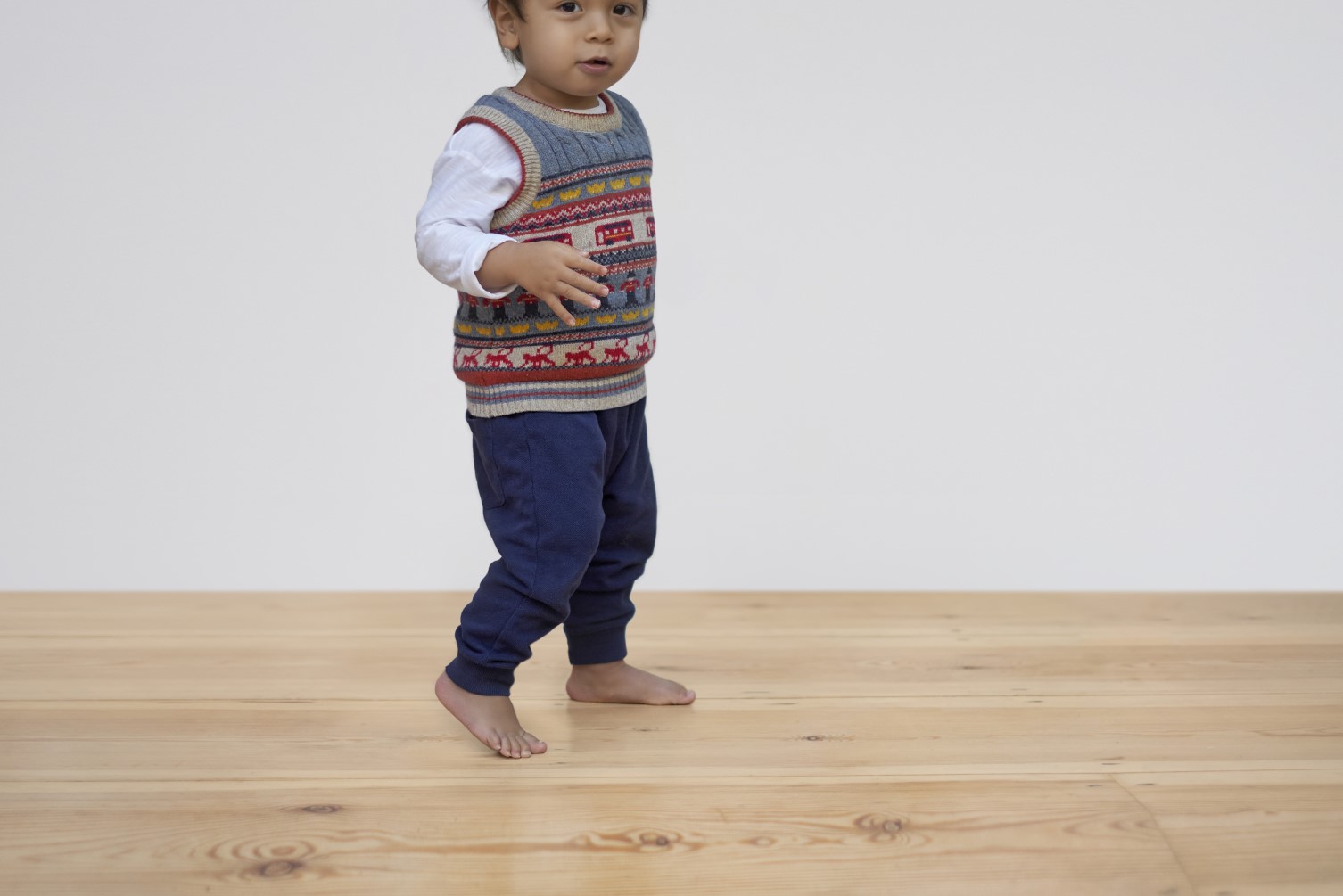
It is usual for parents to celebrate every milestone their baby makes. Watching carefully for their first smile, lifting their head up during tummy time and making their first roll over. With much anticipation, every parent eagerly watches for those first steps and these will usually happen when a baby is aged between nine to sixteen months. All these moments might seem minor to someone else, but to a parent they are big achievements in their baby’s journey. Sometimes this can lead to worry over their baby’s development and if their baby is keeping up with its peers in terms of ‘leaps’ and ‘stages’. It’s important to remember that every child will start to walk when they are ready.
The average age to start walking is between the ages of nine to 16 months, but each child has its own unique timeframe and must progress through various milestones before it can walk.
‘Milestones’ are technically the key movements a child should develop in sequence to ensure it has full movement capabilities as it matures. Like any new skill, babies need to learn the basics before progressing onto higher level skills – like the saying, ‘learning to walk before you can run’. These milestones are genetically programmed as all our body parts develop in sync.
If you are concerned that your baby is falling behind in its milestone progression, then it is advisable to seek medical advice. For example, children with hypermobility might lack the strength in their tendons to take their first step and could need some intervention or mild assistance.
Babies will walk when the time is right for them, so we advise to track physical development of a premature babe by its corrected age – by that we mean tracking from the date that they were due to be born. A baby has to be physically strong enough to stand up, balance and take a step. It’s reasonable to assume that a premature baby might take a little longer to get there, compared to a baby who was born on the same day, but close their due date.
Some school of thought suggest it takes around eight months to learn to walk, but walking, and what happens inside our body when we take those first steps is incredibly complex. Our advice is not to worry or rush your baby but allow it to learn and develop in its own time. If you are concerned about their development then certainly seek advice from a doctor. Some issues, such as flat feet, bowlegs, knocked knees or excessive walking on tip toes (see more on why children walk on tip toes here) could be holding them back, but in general these are quite common conditions and children will grow out of them.
Our feet are constantly adapting and developing to our surroundings, taking sensory feedback from the ground underneath back to the brain. This sensory feedback enables the child to gain balance. Our muscles, ligaments, bones and tendons learn and develop together to build strength, co-ordination and confidence in our physical ability. Our First Walking range has been expertly created to protect these fantastic, complex structures and enable natural sensory feedback for healthy development.
A baby’s foot is mostly cartilage, boxy in shape and has a fat pad underneath. Muscles and ligaments have not yet developed or stabilised, so a baby walking pattern is ‘stompy’ to ensure their weak, underdeveloped foot is not overloaded. A child can’t walk more like an adult until the arch under its foot starts to mature and this won’t happen until the child is around four to five years old. Read more about how to care for your child’s feet here.
It’s important for parents to know that not every child progresses through every theoretical stage. Some children will speed through sitting straight to walking. Some will crawl, kneel or ‘bottom-shuffle’ on their journey to becoming upright. Each child has its own coding or sequencing and there are theoretical road maps as to the process of development but the most important thing for parents to remember is that these are merely a guide and all children will progress through their own unique developmental progress, in their own time.
Author: Vista, published 17-01-2024.